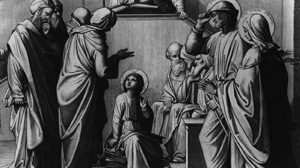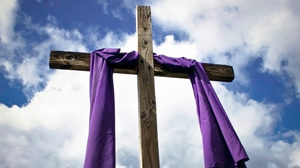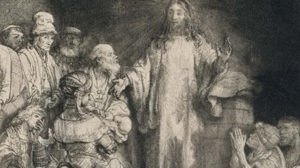Reflection:
“The Word of God continued to spread and grow.”
Today’s first reading details the work of Saul and Barnabas as they preach the Word of God. There is a certain, palpable excitement in the early, infant Christian community. This excitement around evangelization seems difficult to replicate in today’s world!
Over the years I have witnessed and participated in missions, door to door contacts and other media efforts to spread the Good News. Yet the reception of the message often seems to be surrounded with less excitement than what is described in today’s scripture narrative. When I ask myself when people have been most receptive to the Gospel message, I always seem to come back to the same “Passionist truth”.
People can experience God’s love at the foot of the Cross. Relief work during Hurricane Katrina, seeing children and their parents stripped of possessions and family members, taught me how pain can present us with a pivotal choice. Suffering people are in a unique position to receive or reject the Word of God’s love. Compassion becomes the language we use to communicate with each other.
Passionists evangelize by standing together with others at the Cross. My reflection today is in the form of a simple question. Am I compassionately standing with those who are suffering in today’s world?
Terry McDevitt, Ph.D. is a member of the Passionist Family in Louisville, Kentucky.








